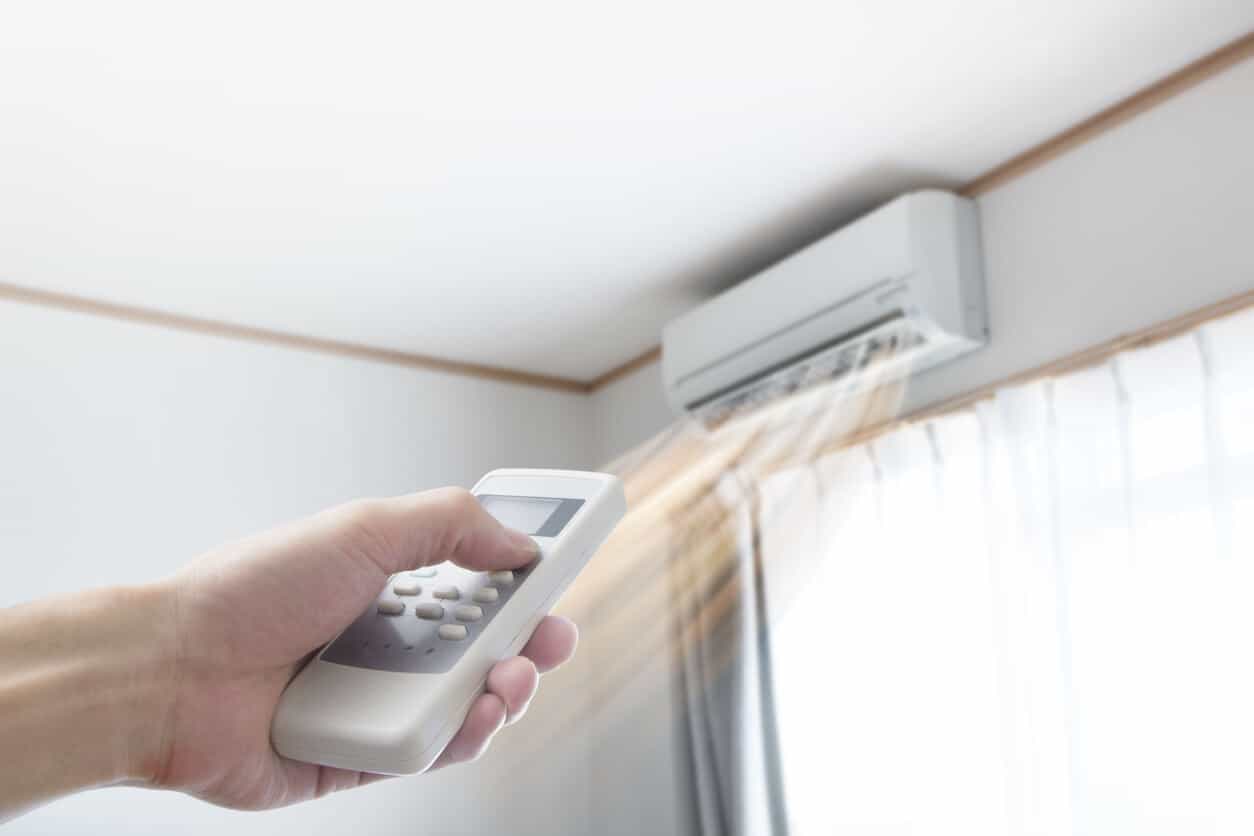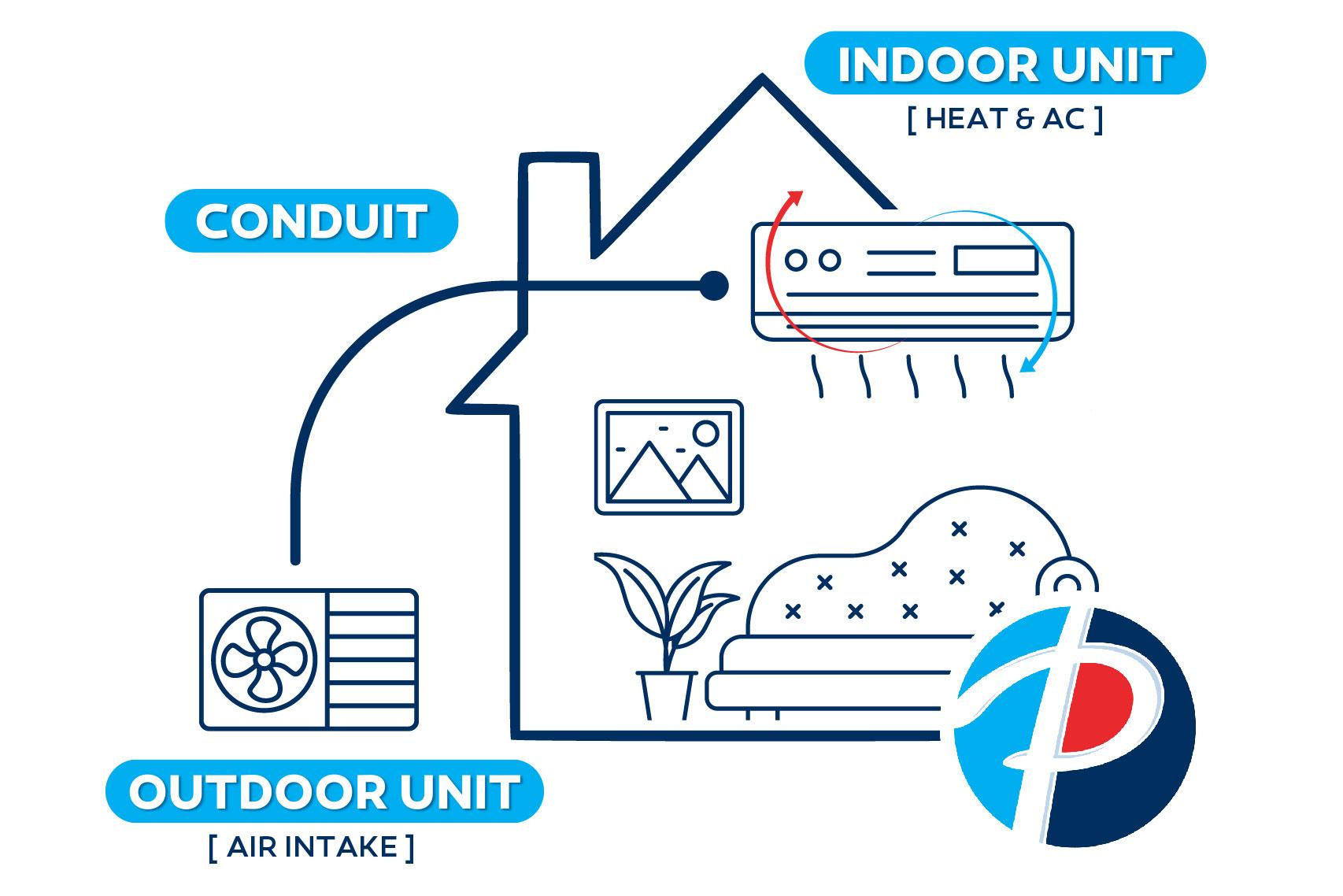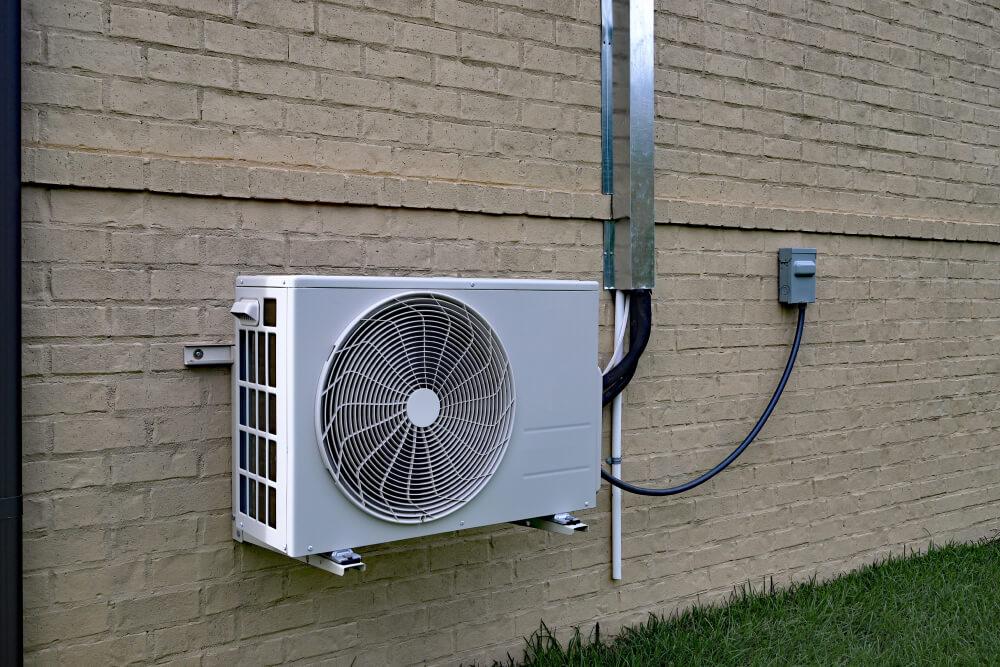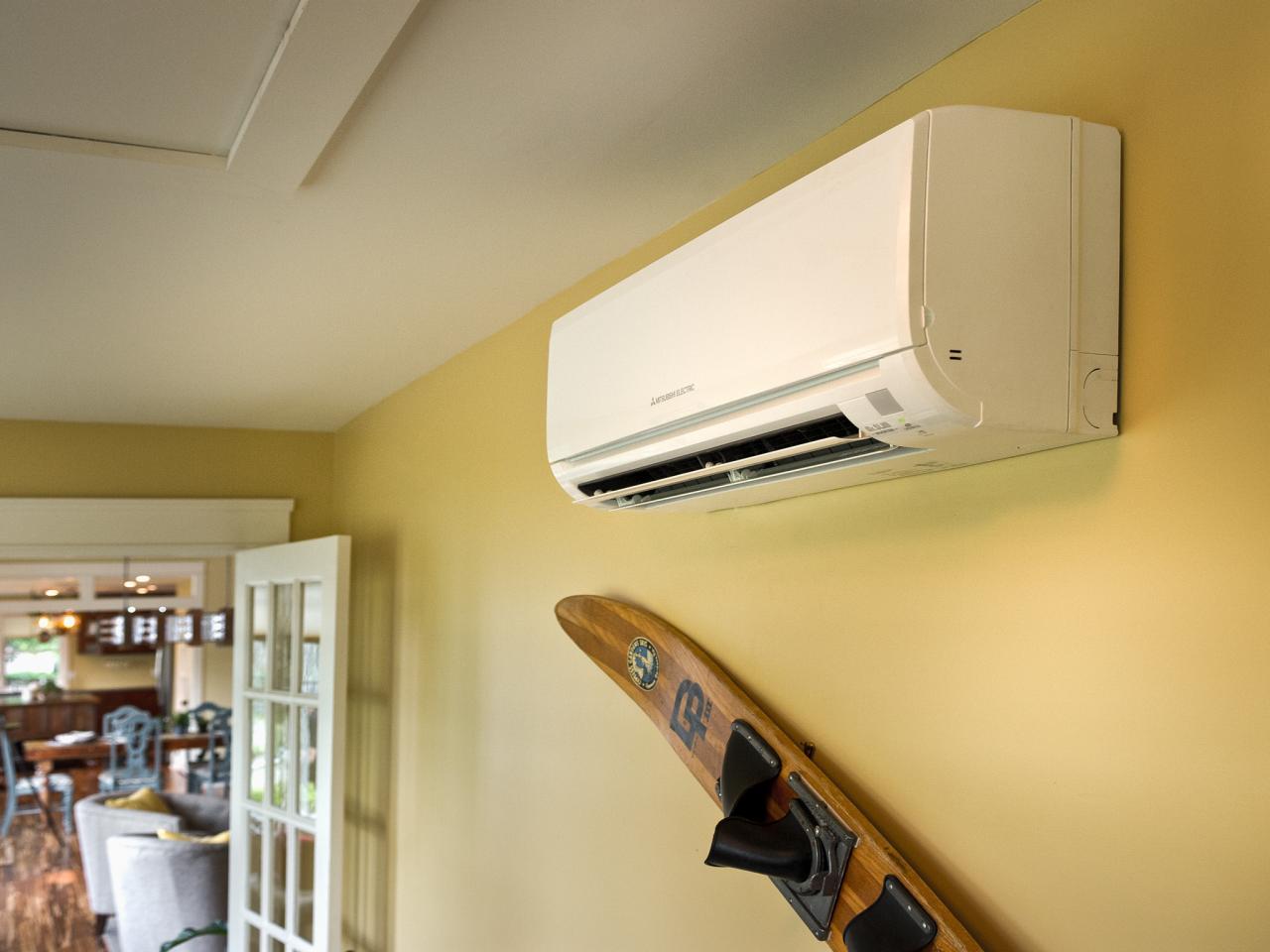Want to save with Paschal? Don’t miss our current offers and specials

Want to save with Paschal? Don’t miss our current offers and specials
Return to Paschal Resource & Education Hub

Split system HVAC units are one of the most common and efficient types of heating and cooling systems used in homes and small businesses. They offer a number of benefits over traditional heating and cooling systems, including improved energy efficiency, lower operating costs, and better indoor air quality. In this article, we will provide a comprehensive guide to split system HVAC units, including how they work, the benefits they offer, and the different types of units available on the market.

A split system HVAC unit, also known as a ductless mini-split system, is a type of heating and cooling system that consists of two main components: an outdoor unit and an indoor unit. The outdoor unit is installed outside of the building, while the indoor unit is mounted on the wall or ceiling inside the building. The two units are connected by a small conduit that houses the refrigerant lines, electrical wiring, and a condensate drain.
The outdoor unit contains the compressor, condenser, and expansion valve, which are responsible for circulating refrigerant throughout the system. The indoor unit contains the evaporator, which is responsible for absorbing heat from the indoor air and transferring it to the outdoor unit.
Split system HVAC units work by using a refrigerant to absorb heat from the indoor air and transfer it outside. During the summer months, the unit operates in cooling mode, removing heat from the indoor air and expelling it outside. During the winter months, the unit operates in heating mode, absorbing heat from the outdoor air and transferring it inside.
The refrigerant is circulated between the indoor and outdoor units by the compressor. The refrigerant is compressed in the outdoor unit, which increases its temperature and pressure. The hot, high-pressure refrigerant then flows to the indoor unit, where it is passed through the evaporator. As the refrigerant passes through the evaporator, it absorbs heat from the indoor air, causing it to evaporate and cool. The refrigerant then returns to the outdoor unit, where it is condensed back into a liquid form. The condenser releases the heat absorbed from the indoor air to the outdoor air, and the refrigerant is then ready to start the cycle again.

Split system HVAC units offer a number of benefits over traditional heating and cooling systems, including:
To compare the operating costs of an all-electric split system and a gas furnace, we need to look at the energy usage and cost of using both systems. According to the US Energy Information Administration, the average retail price of electricity in the US was 13.31 cents per kilowatt-hour (kWh) as of August 2021. Meanwhile, the average price of natural gas was $1.054 per therm, which is equivalent to 10.54 cents per kWh.
Let’s assume that a home with an area of 2,000 square feet requires a heating capacity of 60,000 BTU (British Thermal Units) per hour during the winter. A gas furnace with an annual fuel utilization efficiency (AFUE) rating of 95% would consume 63,157 cubic feet of natural gas to produce the required heat. Based on the average price of natural gas, this would cost $664.77 per year.
On the other hand, an all-electric split system with a seasonal energy efficiency ratio (SEER) rating of 18 and a heating seasonal performance factor (HSPF) rating of 9 would consume 3,333 kWh of electricity to produce the required heat. Based on the average price of electricity, this would cost $443.33 per year.
Therefore, in this scenario, the all-electric split system is cheaper to operate than the gas furnace, with an estimated cost difference of $221.44 per year.
There are several different types of split system HVAC units available on the market, each with its own unique features and benefits. Some of the most common types include:

When choosing a split system HVAC unit for your home, there are several factors to consider, including:
While there are many DIY split systems available online, it’s essential to weigh the pros and cons before making a decision. Here are some potential negatives of a DIY split system installation:
Therefore, it’s highly recommended that homeowners hire a professional installer to ensure that the split system HVAC unit is installed safely and correctly. A professional installer has the technical knowledge and equipment necessary to handle refrigerant and ensure the proper installation of the unit. Additionally, professional installation will not only ensure the safety of the homeowner but also maximize the unit’s efficiency and lifespan. While price is an essential factor, it’s important to consider the value of professional installation when choosing a split system HVAC unit for your home.
Paschal Air, Plumbing & Electric is a leading provider of split system HVAC units and a licensed contractor & dealer for Mitsubishi Electric US and Samsung, offering a wide range of high-quality, energy-efficient units to meet the needs of homeowners and small businesses. Our experienced technicians are trained to handle the installation, repair, and maintenance of all types of split system HVAC units, so you can be confident that your system will be installed and maintained properly.
Whether you are looking for a wall-mounted unit for a small room, a multi-split system for a larger home, or an inverter split system for improved energy efficiency, we have the expertise and experience to help you find the perfect split system HVAC unit for your needs. Contact us today to learn more about our split system HVAC units and to schedule a consultation with one of our experts.
